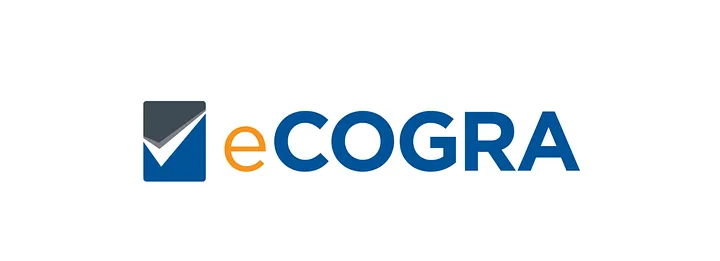Playing at an untrustworthy or rogue online casino can be a costly mistake, leading to potential issues such as funds being stolen, unfair games, and a lack of recourse. It’s crucial to be able to identify and avoid these dubious operations to ensure a safe and enjoyable online gambling experience. This guide will provide you with the necessary information and tools to spot rogue casinos, empowering you to make informed decisions and steer clear of potential pitfalls.
Licensing and Regulation
One of the most critical factors in determining the legitimacy of an online casino is its licensing and regulation status. Reputable casinos are licensed and regulated by recognized governing bodies, which ensure that the casino adheres to strict standards of fairness, security, and player protection. These regulatory bodies, such as the United Kingdom Gambling Commission (UKGC), the Malta Gaming Authority (MGA), and the Gibraltar Betting and Gaming Association, have stringent licensing requirements and conduct regular audits to maintain high industry standards.
When evaluating an online casino, it’s essential to check its licensing information, which should be clearly displayed on the website. Legitimate casinos will proudly showcase their licensing details, as it serves as a stamp of approval and instills confidence in players. To verify a casino’s license, you can typically find the licensing information in the website’s footer or within the “About Us” or “Legal” sections. Most legitimate casinos will provide direct links to the licensing authority’s website, where you can cross-reference the license details.
Alternatively, you can visit the regulatory body’s website directly and search for the casino’s name in their database of licensed operators. Reputable regulators maintain publicly accessible registers of the casinos they have licensed, making it easy to confirm the validity of a casino’s claimed licensing.
Unlicensed or unregulated casinos, on the other hand, should raise immediate red flags, as they operate without any oversight or accountability, increasing the risk of unfair practices and player exploitation. Be wary of casinos that provide vague or ambiguous information about their licensing status or fail to display any licensing information at all.
Reputation and History
In addition to licensing and regulation, a casino’s reputation and operational history can provide valuable insights into its trustworthiness. Conducting thorough research on a casino’s background is crucial to uncovering any potential red flags or concerning patterns.
One effective way to gauge a casino’s reputation is to read reviews and check player complaint forums. These platforms offer firsthand accounts from real players, allowing you to gain insights into the casino’s practices, customer service, and potential issues. While it’s important to take individual reviews with a grain of salt, consistent patterns of negative feedback or unresolved complaints can be a telltale sign of a problematic casino.

Furthermore, it’s advisable to investigate a casino’s age and operational timeline. While a newly established casino is not necessarily a cause for concern, it’s essential to exercise caution, as they have yet to establish a proven track record. On the other hand, casinos with a long-standing history and a consistent presence in the industry are generally more reliable, as they have withstood the test of time and cultivated a reputation for fairness and trustworthiness.
Game Fairness and RNG Testing
Ensuring fair gameplay is a fundamental aspect of a trustworthy online casino. Reputable operators prioritize transparency and undergo rigorous testing to verify the fairness of their games and the integrity of their random number generators (RNGs). Independent testing agencies, such as eCOGRA, TST, and iTECH-Labs, specialize in evaluating and certifying the fairness of online casino games and RNGs.



When evaluating an online casino, look for prominently displayed seals or certifications from these respected testing agencies. These seals serve as a badge of honor, indicating that the casino’s games have been thoroughly tested and deemed fair and random. Legitimate casinos are typically eager to showcase these certifications as a testament to their commitment to player protection and fair gaming practices.
Conversely, a lack of independent testing certifications should raise concerns about the fairness of a casino’s games. Games that have not undergone third-party testing and verification may be susceptible to manipulation or bias, potentially compromising the integrity of the gaming experience and increasing the risk of unfair treatment for players.
Banking Reputability
Managing financial transactions is a critical aspect of online gambling, and the banking methods offered by a casino can reveal valuable insights into its legitimacy and trustworthiness. Reputable online casinos typically partner with well-established and respected payment processors, such as major credit card companies, e-wallets (e.g., PayPal, Skrill, Neteller), and trusted banking institutions.
However, the presence of USDT (Tether USD) or EURT (Tether EUR) as a payment method does not necessarily indicate that a casino is safe or trustworthy.
Tether is a controversial cryptocurrency that claims to be pegged to the value of the US dollar or Euro, but it has faced scrutiny over its transparency and reserve holdings. Some rogue casinos may use Tether as a way to circumvent traditional banking regulations and offer anonymous transactions, which can be a red flag.
While there are legitimate casinos that accept Tether as a payment method, it’s essential to exercise caution and conduct thorough research on the casino’s reputation, licensing, and regulatory compliance before depositing funds using USDT or EURT. The presence of Tether alone should not be considered a reliable indicator of a casino’s safety or trustworthiness.
When evaluating a casino’s banking options, be wary of obscure or unfamiliar payment methods, as these may be indicative of a less reputable operation. Additionally, a history of delayed payouts, withholding winnings, or unexplained payment processing issues should be considered major red flags, as these practices are often associated with rogue casinos.
It’s also advisable to research the casino’s banking policies and terms and conditions thoroughly. Legitimate casinos are transparent about their payout processes, fees, and any potential limitations or restrictions. Ambiguous or predatory banking policies, such as excessive withdrawal fees or unreasonable withdrawal limits, could signal a casino’s intention to exploit players financially.
Website Security and Operations
A reliable online casino should prioritize the security and privacy of its players, as well as maintain professional operations and accessible customer support. When evaluating a casino’s website, look for signs of robust security measures, such as the use of SSL encryption (indicated by a lock icon in the browser’s address bar) and clearly stated privacy policies that outline how player data is collected, stored, and protected.
Furthermore, a reputable casino should have accessible customer support channels, such as live chat, email, and phone support, staffed by knowledgeable and responsive representatives. Prompt and helpful customer service is a hallmark of a trustworthy operation, as it demonstrates a commitment to addressing player concerns and resolving any issues that may arise.
Be cautious of websites that lack transparent ownership or registration information, as these could be signs of a shady or intentionally anonymous operation. Legitimate casinos are typically proud to display their ownership details, licensing information, and physical business addresses, as transparency fosters trust and accountability.
Additional Tips
01
In addition to the key factors discussed above, there are several additional resources and strategies that can help you identify and avoid rogue online casinos. One valuable tool is online casino blacklists and watchdog sites, which maintain databases of casinos with a history of unethical practices, player complaints, or other red flags. These sites can serve as an early warning system, helping you steer clear of potentially problematic operators.
02
Another important consideration is to focus on playing at trusted, well-established casino brands. While new casinos can offer exciting opportunities and innovative features, they also come with a degree of inherent risk, as their track record and reputation are yet to be proven. By opting for casinos with a long-standing presence in the industry and a solid reputation for fairness and reliability, you can minimize the likelihood of encountering issues associated with rogue operators.
03
Finally, it’s crucial to thoroughly understand the terms and conditions of any online casino you consider playing at. Legitimate casinos provide clear and fair terms, outlining key aspects such as bonus wagering requirements, withdrawal policies, and any potential restrictions or limitations. Be wary of casinos with predatory or excessively complex terms, as these may be designed to exploit players or make it difficult to withdraw winnings.
Conclusion
Navigating the world of online casinos requires vigilance and due diligence to ensure a safe and enjoyable gambling experience. By understanding the key indicators of rogue casinos and employing the strategies outlined in this guide, you can effectively identify and avoid untrustworthy operators.
Remember to prioritize casinos with proper licensing and regulation, positive reputations and histories, independently verified game fairness, reputable banking options, and secure website operations.
Utilize additional resources like casino blacklists and watchdog sites, and focus on playing at well-established, trusted brands to further mitigate the risk of falling prey to rogue casinos.
Ultimately, the responsibility lies with each individual player to conduct thorough research and exercise caution when selecting an online casino. By staying informed, vigilant, and proactive in your approach, you can confidently enjoy the excitement of online gambling while minimizing the potential pitfalls associated with rogue operators.
